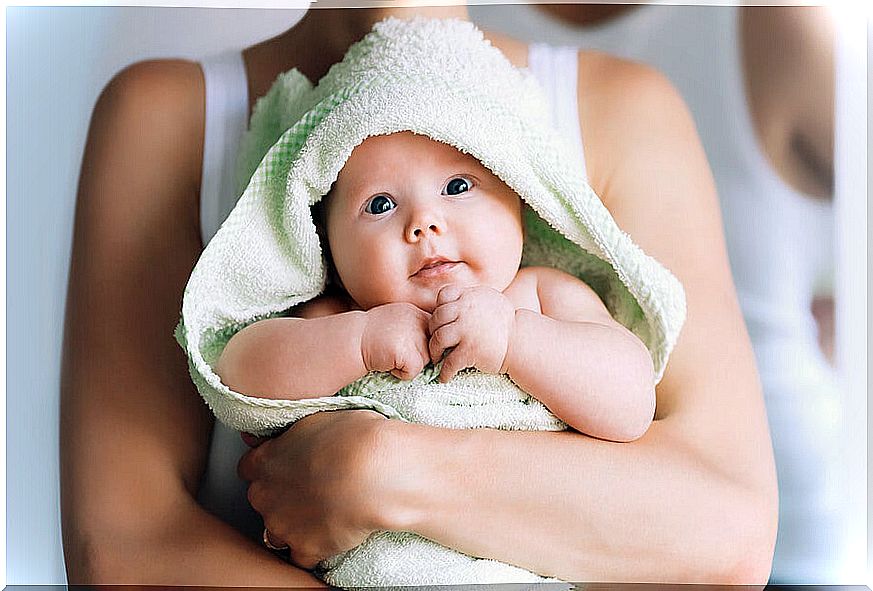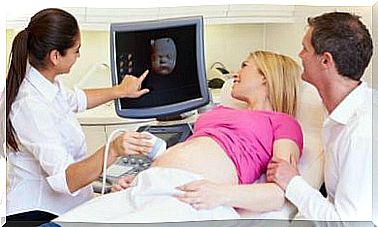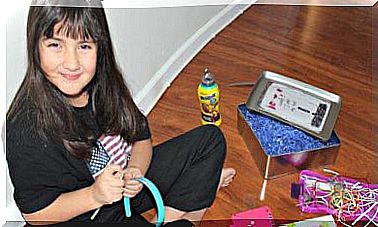8 Myths About Baby’s Health That You Have To Stop Believing

Has it ever happened to you that constant advice from family and friends about caring for your baby overwhelms you? The truth is that, although they are done with the best intentions, this can be counterproductive. In addition, it is worse when much of this information is full of myths without any support.
This last point is what we will talk about today. The myths about the health of the baby are diverse, original and very credible, but in some cases following them excessively could put the health of the little ones at risk. Do you want to discover some of the most frequent? Keep reading!
7 myths about baby’s health

1. If you breastfeed, you cannot take medication
There are many drugs that have the ability to “pass through” breast tissue and be excreted through breast milk. However, in general, this is given in trace amounts that are not capable of causing adverse effects on the baby.
As this study indicates, few conditions require medications that are incompatible with breastfeeding. In fact, in most cases the benefit of this practice outweighs the risk of adverse effects in babies.
This myth is especially related to antibiotics, although in reality only a minority of them are capable of causing problems in the little ones. When in doubt, it is always important to consult with your trusted pediatrician.
2. If you cut your hair, it will grow stronger
Hair development depends more on genetic and environmental factors than on how you cut it. This usually corresponds to an aesthetic value, so if you feel comfortable cutting the hair frequently it is fine, but that will not influence the “strength” of the hair.
3. If he has a fever, it is that he is growing, one of the most frequent myths about the health of the baby
Fever is a response of the body to the presence of certain substances that, although in some cases may come from inside the body, in the vast majority they come from outside (infectious agents).
Growth, although it may be related to occasional and very particular bone pain, is not linked to fever. If your child has a fever, go to the pediatrician as soon as possible.
4. All babies suffer from otitis and must be treated with an antibiotic
Not all babies have ear infections, and not all ear infections are treated with antibiotics. To begin with, there are many types of otitis and the mildest cases are the most frequent. In fact, patients with the latter pathologies tend to show spontaneous improvement after a few days.
The indiscriminate use of antibiotics can lead to resistance phenomena, as this study indicates. The most direct consequence is the decrease in the effectiveness of these drugs both in the child and in the rest of the community in which he lives.
5. Infant vaccines cause autism

In recent years there have been quite a few social movements aimed at rejecting the widespread use of vaccines. The claims behind these are related to the possible adverse effects and the “obligation” of governments to apply to all people a preventive measure for diseases that have not been seen for decades.
The truth is that it is more than proven that vaccines work and, without their development, the world as we know it would not be the same. There are multiple publications of the World Health Organization (WHO) in which special emphasis is placed on this situation, since it is a possible factor that could put global public health at risk.
6. You have to wake him up for the feeding, another of the myths about the health of the baby
When babies are very young and are fully breastfeeding exclusively, it is advisable to feed them freely. However, the baby’s body still works very automatically, so the most it needs is sleep. When it’s time to eat, he will let you know himself.
Of course, when age advances a little and complementary feeding begins, it is convenient to establish breastfeeding schedules. However, this does not mean that it is necessary to interrupt the sleep of the little ones in the house.
7. Do not hold him in your arms, he gets used to it
Babies and young children both need their parents to survive and this is not only related to a roof and food, but also to mobility. Yes, there comes a point where it is necessary to insist that children start taking their first steps, but carrying them is not wrong.
8. Letting him cry is good for giving his lungs strength
It is very normal for babies to cry constantly. In fact, it is possible that when we say the word “baby” one of the first situations that come to mind is this. But this usually has a simple reason, although it is difficult to find the cause.
You may not like the temperature, you are hungry, there is a lot of noise, or you just want your parents around, but you always have to heed the call! Gone is the belief that letting little ones cry is good for the development of their heart and lungs.
Responsible parenting starts with education!
Like the ones we have mentioned, there are many myths related to the health of babies that need to be dismantled. We understand that it is very easy to get carried away by word of mouth, but the most important thing is that, when it comes to health, you ask the pediatrician at the right time to avoid misunderstandings.










